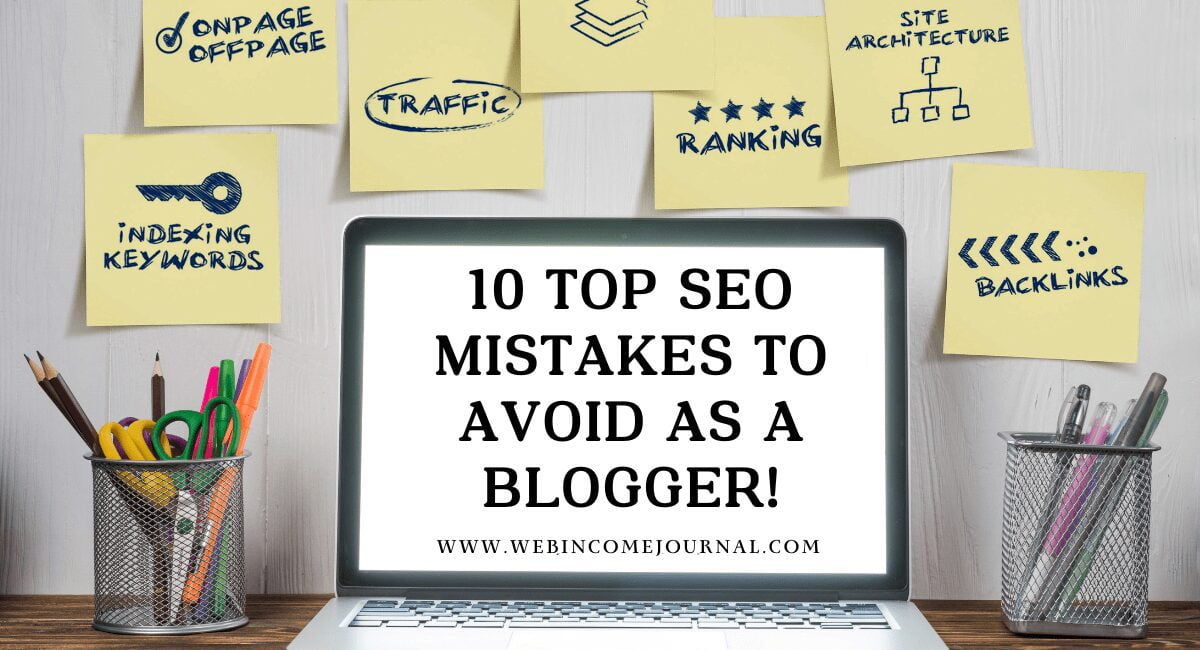
Are you struggling to improve your blog’s ranking on search engine result pages (SERPs)? Or, are you having trouble driving organic traffic with your blog?
If you answer yes to all or any of these questions then you’re probably making some of the most common SEO mistakes that many bloggers make, without really knowing it.
As a blogger you should know that in today’s highly digital world, understanding SEO is very important. If you desire to drive targeted traffic to your blog and boost your blog earnings, it’s crucial that you stay abreast of search engine best practices.
It is unfortunate that many bloggers, in trying to keep up with SEO demands, make critical blunders. These mistakes end up hurting their search rankings instead of improving them. This is really unfortunate because, knowing what not to do in SEO is just as important as understanding the elements of SEO and optimizing your blog accordingly.
Over the past 10+ years as an SEO content strategist, I’ve come across some common SEO mistakes. In this post, I’ve compiled 10 of these top SEO mistakes to avoid if you want to improve your search engine rankings and drive more organic traffic to your blog.
Besides listing these SEO errors, I’ll also give you some actionable tips on how to fix them so you can improve your blog’s ranking and visibility.
So, are you guilty of these common SEO mistakes? Read on to find out!
DISCLOSURE: Some links on this post may be affiliate links. This means I’ll receive a small commission if you buy anything using such links. There’s, however, no extra cost to you. Please do your own research before making any online purchases. Learn more here.
Why Should You Care About SEO and Organic Traffic?
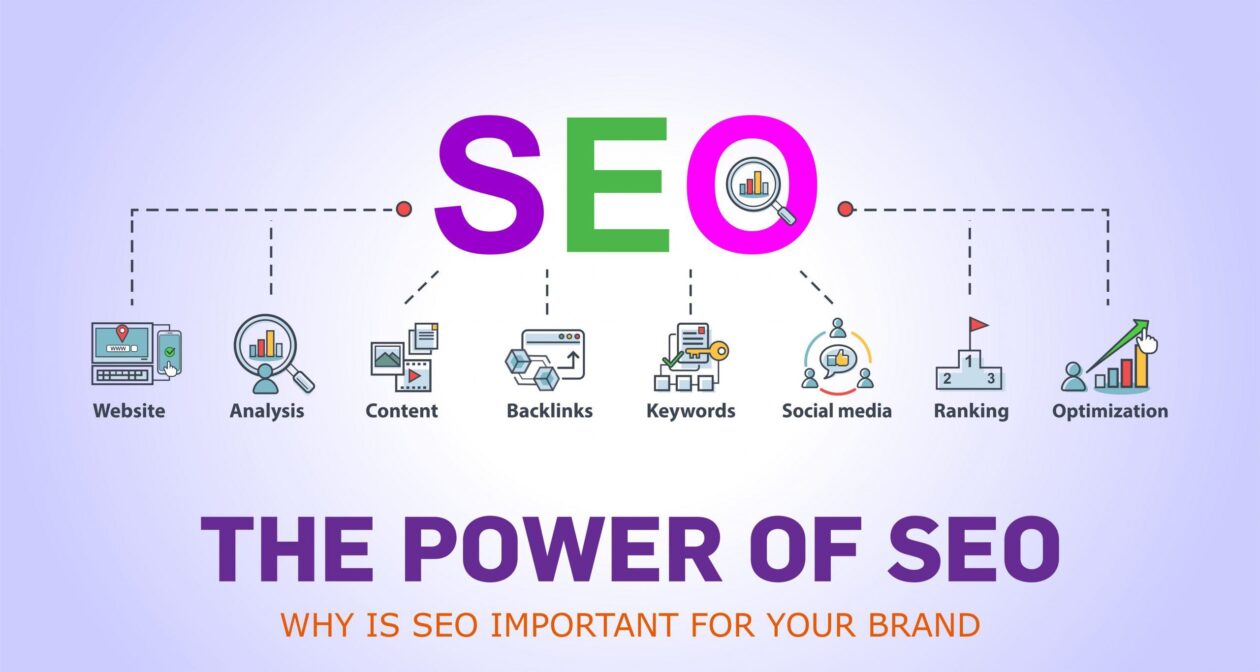
Before delving into the details of this post, let’s first consider some reasons why you should care about optimizing your blog for organic traffic.
As you may already know SEO is how you optimize your blog or website to rank higher on search engine results pages (SERPs) for specific keywords and phrases. When someone searches for something on Google, for example, the search engine uses complex algorithms to determine which pages are the most relevant and useful for that search query.
With SEO you’re able to optimize your blog to meet the criteria Google uses to determine relevance and usefulness.
Organic traffic on the other hand, are visitors who arrive at your blog through unpaid search results. These visitors find your website by using search engines such as Google or Bing, rather than clicking on paid advertisements. Unlike paid traffic, which comes from visitors who clicked on ads, organic traffic is free.
So why optimize your blog for organic traffic? Here are some reasons:
- Higher quality traffic: Organic traffic tends to be higher quality than other types of traffic because people are actively searching for information related to your blog’s niche or topic.
- Cost-effective: Organic traffic is free, so optimizing your blog for SEO is a cost-effective way to attract more traffic and potential customers to your website.
- Long-term results: Unlike paid traffic, which stops flowing once you stop paying for ads, organic traffic can continue to come to your blog long after you’ve optimized it for SEO.
- Builds authority: By consistently producing high-quality, optimized content, your blog can become a go-to resource for people interested in your niche or topic, which can help build your authority and credibility in the industry.
- Better user experience: SEO optimization often includes making improvements to the overall user experience of your blog, such as improving page load times and making content easier to navigate, which can lead to higher engagement and more return visitors.
So, What Are the Top SEO Mistakes to Avoid?
Alright, let’s now discuss the biggest SEO fails that every blogger should avoid and some tips on how you can avoid them.
Mistake #1: Not Doing Keyword Research
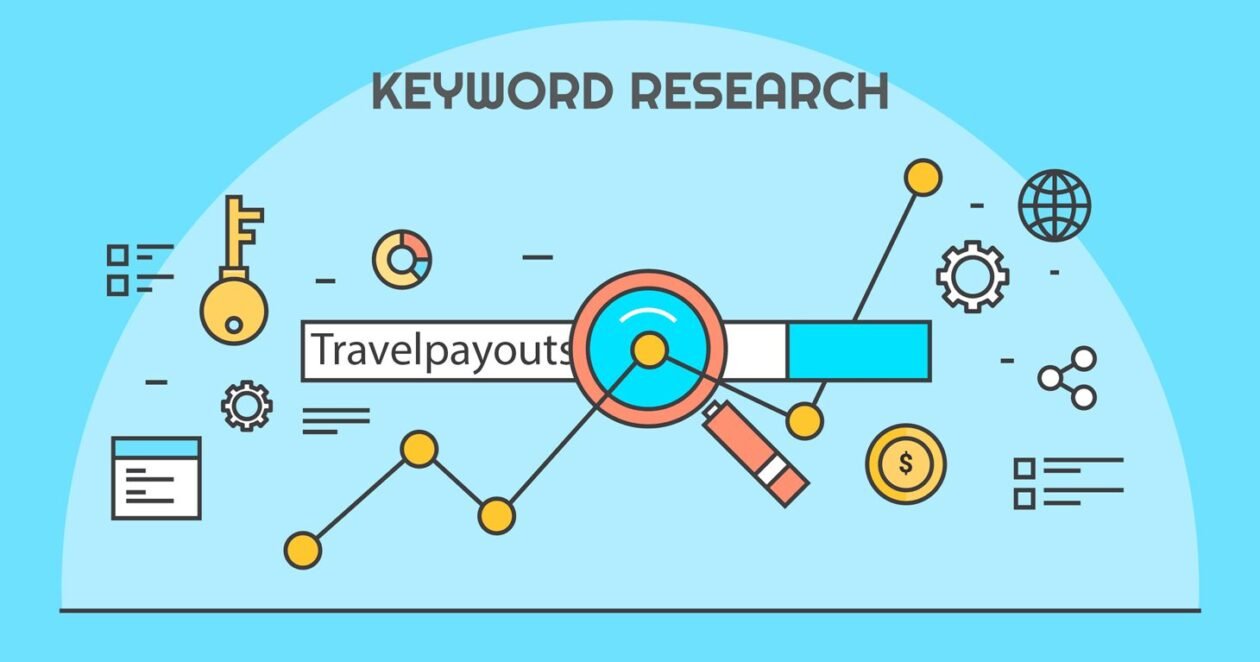
One of the biggest SEO mistakes that bloggers make is not doing proper keyword research. In fact, this is biggest error because a lot of bloggers believe that content is king and all you need to do to succeed is to create more and more content.
Now, while content is king, without targeting the right keywords, you could be missing out on a significant amount of organic traffic. But why is keyword research so important? Well, if you’re not targeting the right keywords, you could be wasting your time and effort creating content that nobody is interested in. Additionally, you may be targeting keywords that are too competitive, making it difficult for your content to rank higher in search engines.
So, it’s important that you do keyword research before you write any piece of content.
Keyword research is the process of finding and analyzing the search terms that people are using to find content related to your niche. By identifying the right keywords, you can optimize your content and increase your chances of ranking higher in search engine results pages (SERPs).
How to Avoid This SEO Mistake
- Use a keyword research tool to find relevant keywords: There are several free and paid tools available, such as Google Keyword Planner, Ahrefs, and SEMrush. These tools can help you identify search volumes, competition levels, and related keywords that you can target in your content.
- Prioritize keywords that have high search volumes and low competition: These are the keywords that are more likely to bring in traffic to your website. However, don’t just stuff these keywords into your content. Instead, make sure to include them naturally and in a way that adds value to your readers.
Mistake #2: Ignoring On-Page Optimization
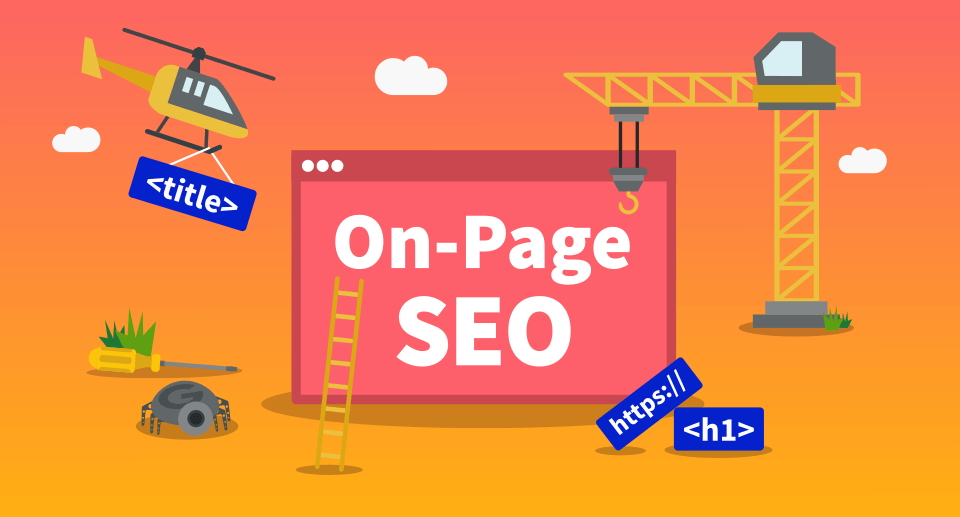
Another common SEO mistake that bloggers make is ignoring on-page optimization. On-page optimization refers to the optimization of individual pages on your website to improve their search engine rankings.
There are several elements of on-page optimization that you should pay attention to, such as title tags, meta descriptions, header tags, and content optimization. By optimizing these elements, you can make it easier for search engines to understand what your content is about and improve your chances of ranking higher in search engine results pages.
How to Avoid This SEO Mistake
- Optimize your title tags: Title tags are one of the most important on-page optimization elements. They provide a brief description of what your content is about and appear in search engine results pages as the clickable headline. Make sure to include your primary keyword in the title tag and keep it under 60 characters.
- Optimize your meta descriptions: Meta descriptions are another important element of on-page optimization. They provide a brief summary of what your content is about and appear below the title tag in search engine results pages. Make sure to include your primary keyword in the meta description and keep it under 155 characters.
- Optimize your header tags: Header tags are also crucial for on-page optimization. They provide structure to your content and make it easier for search engines to understand what your content is about. Use header tags to break up your content into smaller sections and include your primary and secondary keywords in them. Make sure you use them properly, with H1 tags reserved for the main heading of the page, and H2 and H3 tags used for subheadings.
- Don’t stuff your content with keywords: While it’s important to include relevant keywords in your content, stuffing your content with too many keywords can actually hurt your SEO efforts. Search engines can penalize websites that engage in keyword stuffing. Instead, focus on creating high-quality, relevant content that naturally incorporates your target keywords.
- Optimize your images: Images can be a great way to enhance your content, but they can also slow down your website’s load time if they’re not optimized. Make sure you compress your images and include descriptive alt text to improve your SEO.
- Optimize your content for your target keywords: This includes using your primary and secondary keywords in your content naturally, including them in the first paragraph, and using variations of your keywords throughout your content.
One tool that can help you optimize your blog for each of these issues is Rank Math SEO. Click here to learn more about Rank Math SEO.
Mistake #3: Overlooking Mobile Optimization

In today’s digital age, more and more people are using their mobile devices to access the internet. In fact, mobile traffic now accounts for the majority of internet traffic. This means that mobile optimization is no longer a nice-to-have, but a must-have for bloggers and website owners.
One of the biggest mistakes that bloggers make is overlooking mobile optimization. If your website is not mobile-friendly, you’re likely to lose out on a significant amount of traffic and potential revenue.
How to Avoid This SEO Mistake
- Ensure your website is responsive: This means that your website should be able to adapt to different screen sizes and resolutions. You can use a responsive website design or a mobile-specific website to achieve this.
- Optimization for page speed: Mobile users are often on-the-go and have limited time to wait for a website to load. Make sure to optimize your images, minimize the use of plugins, and use a content delivery network (CDN) to improve your page speed.
- Ensure your blog is easy to navigate on a mobile device: This means using large buttons and fonts, and ensuring that your menus are easy to use on a smaller screen.
- Test for mobile-friendliness: Finally, make sure to test your website on different mobile devices to ensure that it looks and functions correctly. Use tools like Google’s Mobile-Friendly Test and PageSpeed Insights to check for mobile-friendliness and page speed.
Mistake #4: Neglecting Content Quality
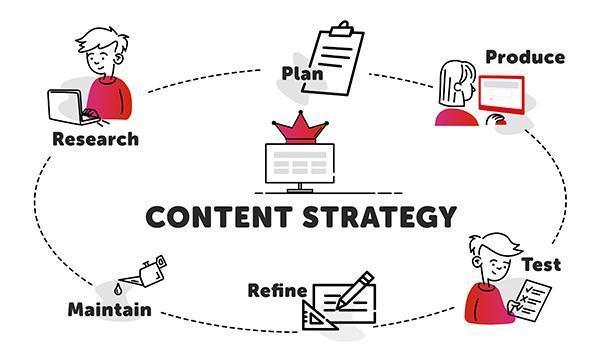
It’s no secret that content is king when it comes to SEO. However, many bloggers make the mistake of focusing solely on quantity rather than quality. Neglecting content quality can have a negative impact on your blog’s SEO and user experience.
One of the biggest mistakes that bloggers make is creating content for the sake of creating content. This often leads to thin, low-quality content that provides little value to the reader. Instead, focus on creating high-quality content that is informative, engaging, and well-researched.
How to Avoid This SEO Mistake
- Do your research: To ensure that your content is of high quality, conduct thorough research on your topic and provide accurate, up-to-date information. Use credible sources and provide references where necessary. Make sure to also use relevant keywords throughout your content, but avoid keyword stuffing.
- Pay attention to formatting and readability: Use short paragraphs, subheadings, and bullet points to make your content easier to read and digest. Use high-quality images and videos to supplement your content and break up long blocks of text.
- Be relevant: Another important aspect of content quality is relevance. Make sure that your content is relevant to your target audience and provides value to them. Consider their pain points, questions, and interests when creating your content.
Mistake #5: Neglecting Internal Linking
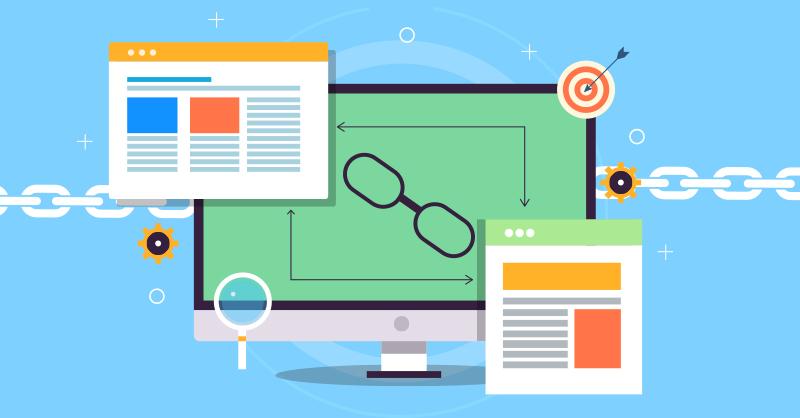
Internal linking is an often overlooked aspect of SEO, but it can have a significant impact on your website’s search engine rankings. Neglecting internal linking can lead to missed opportunities for improving your blog’s user experience and SEO.
Internal linking refers to the practice of linking to other pages on your blog within your content. This helps to create a hierarchy of pages on your blog and allows search engines to better understand the structure and content of your blog.
One of the biggest benefits of internal linking is that it helps to distribute link equity throughout your website. Link equity is the value that a link passes from one page to another, and by linking to other pages on your blog, you can help to pass on this value and improve the overall SEO of your blog.
In addition to improving SEO, internal linking also helps to improve user experience by providing additional context and resources for your readers. By linking to related content, you can keep your readers engaged and on your blog longer.
How to Avoid This SEO Mistake
- Link relevant content using descriptive anchor text: When it comes to internal linking, make sure to link to relevant content and use descriptive anchor text. Avoid using generic anchor text such as “click here” or “read more” and instead use descriptive text that accurately reflects the content that the link leads to.
- Avoid over-linking: It’s also important to avoid over-linking or linking to the same pages repeatedly. This can be seen as spammy and may harm your blog’s SEO.
Mistake #6: Focusing Only on Search Engines
While search engines are a critical aspect of SEO, it’s important to remember that ultimately, your blog is designed for people, not search engines. Focusing only on search engines can lead to a neglect of user experience and result in missed opportunities for engagement and conversion.
One common mistake that bloggers make is to create content solely for the purpose of ranking high on search engines. While it’s important to optimize your content for search engines, it’s equally important to create content that provides value to your readers and engages them.
In addition to creating high-quality content, it’s important to focus on user experience by optimizing your blog’s design, navigation, and functionality. A user-friendly blog not only improves engagement but also helps to improve search engine rankings.
Another aspect of focusing solely on search engines is neglecting other channels for driving traffic and engagement. Social media, email marketing, and other forms of online marketing can all play a significant role in driving traffic to your blog and engaging your audience.
How to Avoid This SEO Mistake
- Create valuable content: Make sure to create content that provides value to your readers and engages them.
- Diversify your traffic generation channels: Focus on creating a user-friendly website and explore other channels for driving traffic and engagement. By taking a holistic approach to SEO, you can improve your blog’s search engine rankings and provide a better experience for your audience.
Recommended: Blog Content Strategy Made Simple: How to Create a Plan That Works in 2023
Mistake #7: Not Monitoring and Adjusting SEO Strategy

SEO is not a one-and-done process. It requires ongoing monitoring and adjustments. This is what will ensure that your strategy is effective and up-to-date with the latest trends and algorithms. If you neglect to regularly monitor and adjust your SEO strategy, it can result in missed opportunities and a decline in search engine rankings because search engine algorithms are constantly evolving. What worked yesterday may not work today.
How to Avoid This SEO Mistake
- Regularly monitor your website’s performance: This includes tracking your website’s search engine rankings, analyzing your website’s traffic and engagement metrics, and staying up-to-date with the latest SEO trends and best practices.
- Adjust your SEO strategy based on changes in your business or industry: For example, if you launch a new product or service, you may need to adjust your SEO strategy to focus on keywords related to that product or service.
Recommended: How to Perform Web SEO Analysis Free Using Rank Math SEO
Mistake #8: Not Optimizing for Local Search

If you have a blog or online business that serves a local audience, it’s essential to optimize your website for local search. Local search optimization can help you attract more local customers and improve your website’s visibility in local search results.
Unfortunately, a lot of bloggers focus their content optimization only on general keywords and neglect local search optimization. While it’s important to optimize your website for general keywords, you should also focus on local keywords that are relevant to your business and audience.
How to Avoid This SEO Mistake
- Creating a Google My Business account and optimizing your business listing: This includes adding accurate and detailed information about your business, such as your address, phone number, and hours of operation.
- Optimize for local keywords: You should include local keywords in your website’s content, meta descriptions, and title tags. This can help your website rank higher in local search results and attract more local customers.
- Optimize for local search: You can do this by creating content, such as blog posts or videos that focus on local topics or events. This can help your website rank higher in local search results and establish your blog or online business as a local authority.
Mistake #9: Using Duplicate Content
Duplicate content refers to content that appears on multiple pages on the internet, including your own website. When search engines find duplicate content, they have difficulty deciding which version to rank higher in the search results. As a result, your website’s ranking may be penalized.
Duplicate content can be caused unintentionally or intentionally. Some bloggers may duplicate content on their site without realizing it, while others may do it to manipulate the search rankings. However, regardless of the reason for the duplicate content, it can negatively impact your SEO efforts.
How to Avoid This SEO Mistake
- Always create unique and original content: By creating unique and original content, you can improve your website’s rankings and provide value to your readers.
- Check your website regularly for duplicate content: This can be done by using a plagiarism checker or by manually checking for similar content on different pages. If you find duplicate content on your website, there are several ways to fix it. You can either delete the duplicate content or rewrite it to make it unique. You can also use canonical tags to indicate to search engines which version of the content is the original.
Mistake #10: Neglecting Technical SEO

While on-page optimization and content creation are important aspects of SEO, technical SEO is equally important for the success of your blog. Neglecting technical SEO can lead to a range of issues, from slow page loading times to indexing problems.
Here are some common technical SEO mistakes that bloggers should avoid and tips on how to do so:
- Not using HTTPS: If your blog isn’t using HTTPS, it’s time to switch over. Google has confirmed that HTTPS is a ranking factor, and not using it could result in your website being marked as “not secure”.
- Ignoring website speed: Website speed is a crucial factor for SEO, as Google prioritizes fast-loading websites. You can improve your website speed by optimizing images, minimizing code, and using a content delivery network (CDN).
- Not using structured data: Structured data helps search engines understand the content on your website better, which can lead to better search rankings and more traffic. Use tools like Schema.org and Rank Math SEO to add structured data to your website.
- Ignoring XML sitemaps: XML sitemaps help search engines crawl your website more effectively, which can improve your search rankings. Make sure your blog has an XML sitemap and that it’s regularly updated.
- Not optimizing for mobile: With the majority of web traffic now coming from mobile devices, it’s essential that your website is optimized for mobile. Use a responsive design and ensure that your website is easy to navigate on a small screen.
- Not fixing broken links: Broken links can harm your website’s user experience and search rankings. Use tools like Google Search Console to identify broken links and fix them promptly.
By avoiding these technical SEO mistakes, you can ensure that your blog is optimized for search engines and providing the best possible user experience for your readers.
Recommended: The Ultimate Guide to Choosing the Best WordPress SEO Plugin
Conclusion
Optimizing your blog or website for search engines is a crucial aspect of digital content production. Ignoring the basic elements of SEO can lead to low rankings, low traffic, and ultimately, low engagement with your target audience.
In this post, I’ve highlighted the top 10 SEO mistakes that bloggers should avoid at all costs. From not doing keyword research to neglecting technical SEO, these mistakes can have a significant impact on your website’s search engine visibility.
By avoiding these common SEO mistakes and implementing a well-rounded SEO strategy, you can improve your blog’s search engine visibility and attract more organic traffic. Remember, SEO is not a one-time fix, but rather an ongoing process of continuous improvement.
If this post was helpful in any way, kindly it share with your online contacts.






